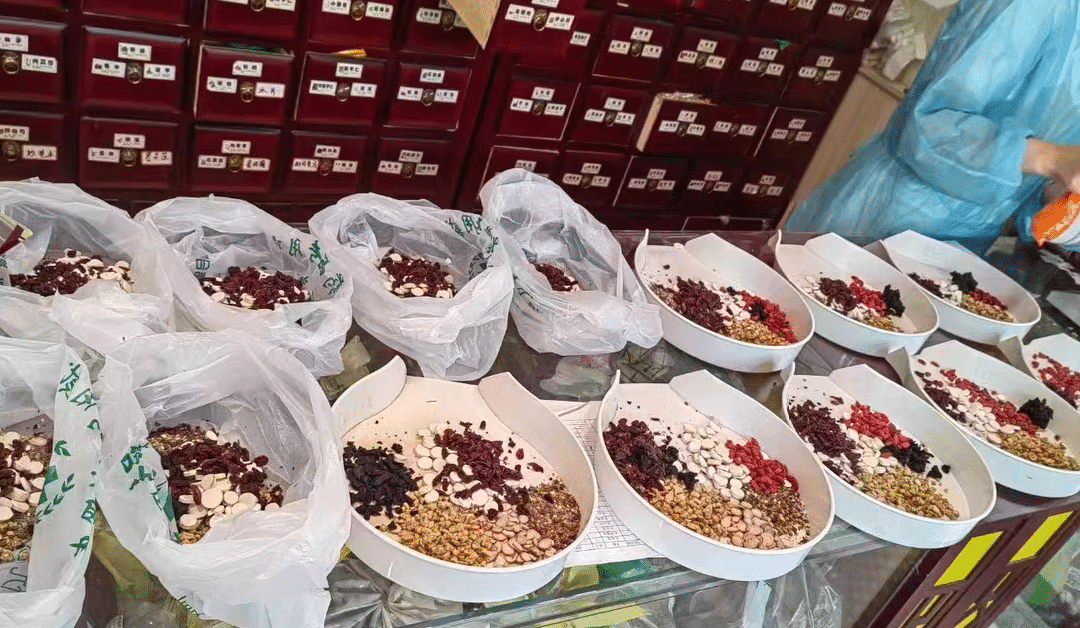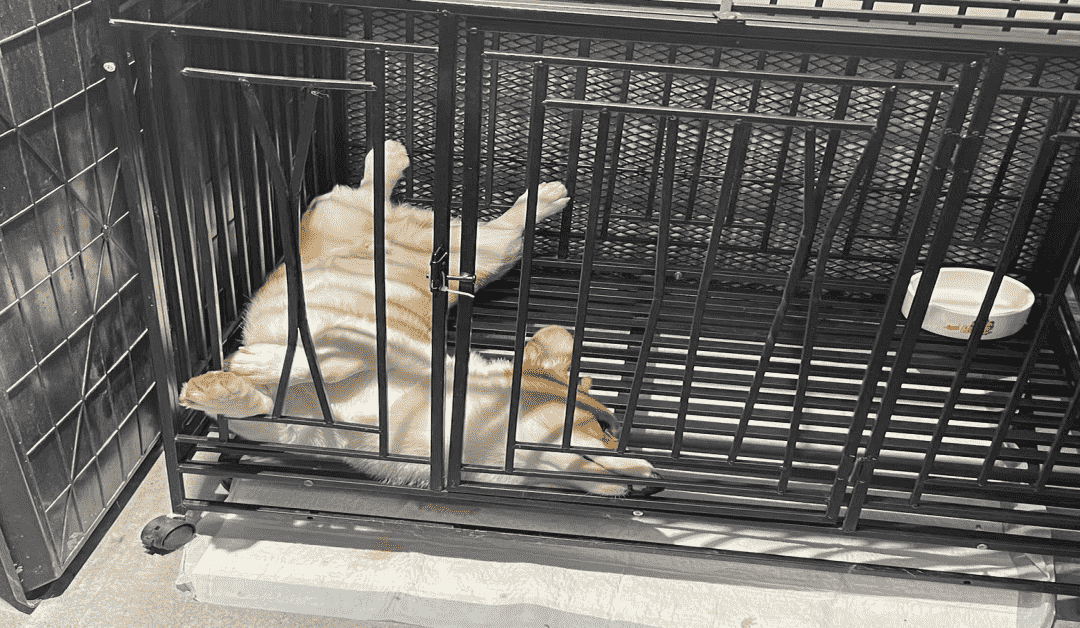
by Dr. Faith Whitehead | Nov 11, 2022 | Cat Cancer & Tumors, Dog Cancer & Tumors, Food & Health, Medicines & Therapies, pet Chinese herbal medicine, Research and News
Ayurveda is a system of medicine originating in ancient India that seeks to treat the body, mind, and spirit as a whole. It is based on the belief that health and wellbeing are determined by a balance of the three doshas, or energies, in the body. Ayurveda practitioners use a variety of techniques, including diet, lifestyle changes, and massages, to restore balance and improve health. TCM, or Traditional Chinese Medicine, is another system of medicine with ancient roots. It is based on the belief that health is determined by the balance of yin and yang energies in the body. TCM practitioners use a variety of techniques, including acupuncture, herbal medicine, and massage, to restore balance and improve health.
There are several key differences between Ayurveda and Traditional Chinese Medicine (TCM). Ayurveda is a holistic system of medicine from India that dates back over 5,000 years. TCM is a similar system of medicine from China that has been practiced for over 5,000 years. One key difference between the two systems is that Ayurveda focuses on the mind-body connection, while TCM focuses more on the physical body. Ayurveda also emphasizes the importance of balance in one’s life, while TCM focuses more on the use of herbs and acupuncture to restore balance. Ayurveda emphasizes preventative care, while TCM focuses more on treating existing conditions. Ayurveda’s three doshas are Vata, Pitta, and Kapha. Each dosha is made of a combination of two of the five elements. Vata is made of space and air and governs movement and change. Pitta is made of fire and water and governs metabolism, digestion, and transformation. Kapha is made of water and earth and governs structure and stability. Our bodies are made of the same five elements that make up the universe. Ayurvedic practitioners believe that when our bodies are out of balance, it’s because we have too much or too little of one of the elements. Ayurveda aims to bring the body back into balance by using dietary and lifestyle changes, as well as herbal remedies.
Both TCM and contemporary drug are practised in mainland China and China, and most Chinese-Americans are comfortable being both medical thought schemes. Nevertheless, certain fields of care are seen as better suited for contemporary drug, e.g., emergency aid and identifiable illnesses , e.g., cancer, stroke, surgery and diabetes. Some degenerative illnesses, e.g., arthritis or digestive subjects, may remain mostly treated with TCM. Some Chinese people would have TCM first to present a symptom or illness before seeing the doctor. Because TCM emphasises that each part of the structure is related with others, it should be required that some Chinese-Americans can incorporate components of TCM into the attention they have, including end-of-life care. People may create their own therapy, for instance altering their fast, frequently seeking help from practitioners, who may or may not be certified]
There is a significant body of evidence that suggests that Ayurveda and TCM can be effective in the treatment of a wide range of conditions. In particular, these modalities may be helpful in the management of chronic conditions such as pain, fatigue, and arthritis. Additionally, Ayurveda and TCM may also be beneficial in the treatment of mental health conditions such as anxiety and depression.
About the author: Dr. Faith Whitehead; is a licensed veterinarian and researcher.

by Dr. Faith Whitehead | Nov 11, 2022 | Research and News, Cat Cancer & Tumors, Dog Cancer & Tumors, Food & Health, Medicines & Therapies, pet Chinese herbal medicine
Pets play an important role in TCM, where they are often used as therapy animals. In traditional TCM, there are four main categories of therapy animals: domestic animals, wild animals, insects, and reptiles. Each category has different therapeutic effects and is used for different purposes. Pets can be used to treat a wide variety of conditions, including anxiety, depression, stress, insomnia, and chronic pain. They can also be used to improve circulation, boost the immune system, and promote healing. There are a variety of ways to use pets in Chinese medicine. Common methods include acupuncture, moxibustion, cupping, and massage. Acupuncture is a form of Chinese medicine that involves inserting thin needles into the skin at specific points on the body. It is used to treat a wide variety of conditions, including pain, anxiety, nausea, and migraines. Moxibustion is a form of Chinese medicine that involves burning dried mugwort (Artemisia argyi) on or near the skin. It is used to treat a variety of conditions, including pain, inflammation, and menstrual cramps. Cupping is a form of Chinese medicine that involves placing glass cups on the skin and creating a vacuum. This vacuum pulls the skin and muscles upwards, which is said to improve circulation and relieve pain. Massage is a form of Chinese medicine that involves rubbing, kneading, or stroking the skin with the hands. It is used to treat a variety.
Domestic animals, such as dogs and cats, are the most commonly used therapy animals in China. They are often used in hospitals and nursing homes to help patients recover from illness and injury. Dogs are especially popular, as they are believed to have a special ability to sense and respond to human emotions. Therapy animals can provide companionship, emotional support, and physical contact to people who are lonely, sick, or injured. They can also help people to coping with anxiety, stress, and depression. Therapy animals can be used in a variety of settings, including hospitals, nursing homes, schools, prisons, and shelters. There is no formal training or certification required for therapy animals in China. However, animals must be healthy and have a good temperament in order to be considered for therapy work.
Wild animals, such as tigers and bears, are also used in Chinese medicine, but they are less common than domestic animals. Wild animals are thought to have more powerful therapeutic effects than domestic animals, and they are often used to treat more serious conditions. There are a number of different ways that wild animals can be used in traditional Chinese medicine. They can be used whole, or in parts, and can be consumed orally, applied topically, or injected. One of the most common ways that wild animals are used in traditional Chinese medicine is through the consumption of their body parts. This can be done by eating the meat, organs, or other tissues of the animal, or by drinking its blood. Wild animals are also sometimes used in traditional Chinese medicine through the application of their body parts to the skin. This can be done by rubbing the body part on the skin, or by applying it as a poultice. In some cases, wild animals are used in traditional Chinese medicine through injections. This is usually done with the help of acupuncture needles, which are inserted into specific points on the body. There are a number of different benefits that are associated with the use of wild animals in traditional Chinese medicine. For example, it is believed that they can help to improve circulation, reduce inflammation, and relieve pain. Wild animals are also thought to be able to improve the function of the immune system, and to help to fight off infections.
Insects, such as bees and silkworms, are also used in Chinese medicine. Insects are believed to have a range of therapeutic effects, including the ability to reduce inflammation and pain. Reptiles, such as snakes and lizards, are also used in Chinese medicine. Reptiles are thought to have powerful therapeutic effects, and they are often used to treat serious conditions. In addition to animals, Chinese medicine also uses a variety of plant-based substances. Herbs are the most commonly used plant-based substances in Chinese medicine. Chinese herbs are often used to treat a wide variety of conditions, including pain, inflammation, and digestion problems. A wide variety of plant-based substances are used in Chinese medicine, including roots, leaves, flowers, and bark.Many intractable diseases can be treated with a combination of traditional Chinese and Western medicine.
About the author: Dr. Faith Whitehead; is a licensed veterinarian and researcher.

by Dr. Faith Whitehead | Nov 11, 2022 | Cat Cancer & Tumors, Dog Cancer & Tumors, Medicines & Therapies, pet Chinese herbal medicine, Research and News
Some people may have had positive experiences working with Chinese veterinarians and find them to be trustworthy, while others may have had negative experiences or heard negative things from others and therefore do not trust them. Some people may believe that Chinese veterinarians are not as qualified as veterinarians from other countries, while others may believe that they are just as qualified. Some people may think that Chinese veterinarians are more likely to use traditional Chinese medicine (TCM) treatments, while others may think that they are just as likely to use western medicine treatments. Some people may think that Chinese veterinarians are more affordable than veterinarians from other countries, while others may think that they are just as expensive.
The Chinese have a long and proud tradition of veterinary medicine. For thousands of years, the Chinese have been using their knowledge of animal anatomy and physiology to treat a wide variety of animal diseases. Today, Chinese veterinarians are among the most highly trained and experienced in the world. They are able to provide expert care for a wide range of animals, from domestic pets to livestock. In addition, they are also skilled in the latest diagnostic and treatment techniques. As a result, Chinese veterinarians are able to provide outstanding care for their patients. The Chinese veterinarians have demonstrated outstanding capabilities in the treatment of a wide variety of animal diseases, ranging from infectious diseases to cancer. They have also shown great skill in the surgical treatment of animals. In addition, they have developed a number of innovative techniques for the care and treatment of animals.
In the Chinese society, veterinarians are seen as very reliable and frequently, doctors ‘ beliefs are considered the most valuable. They are perceived as extremely intelligent, principled, ethical and possessing limited knowledge. Elders may feel comfortable deferring to doctors yet at the beliefs of their kids. Thus, identifying the healthcare proxy would be seen as insignificant to some Chinese elders. Agreement among family members is respected, and the judgment of this physician will change and point end-of-life discussions, while the thought of the healthcare proxy, or ‘ sole advocate, ‘ may be seen as a barrier to the decision-making process. Veterinarians play a leading part in the well-being of our community by caring for animals and by utilizing their expertise and training to assist and improve human health, too.
In “Dogs in China: An Investigation into Pet Markets, Animal Welfare, Cross-border Trade and Quarantine,” report authors Emma Hockridge and Peter J. Li wrote, “The Chinese food and drug regulator, the Food and Drug Administration (CFDA), is responsible for monitoring the quality of veterinary drugs, and the Ministry of Agriculture (MOA) is responsible for the supervision of the use of veterinary drugs.” China’s veterinary profession has been growing in recent years. According to the China Veterinary Association, the number of practicing veterinarians has increased from about 50,000 in 1998 to more than 100,000 in 2013. According to the China Veterinary Association, the number of practicing veterinarians has increased from about 50,000 in 1998 to more than 100,000 in 2013. The veterinarians are also very professional. They know what to do and how to treat the animals. They also have the necessary supplies to treat the animals. All the veterinarians in China are highly qualified.
About the author: Dr. Faith Whitehead; is a licensed veterinarian and researcher.

by Dr. Faith Whitehead | Nov 11, 2022 | pet Chinese herbal medicine
Human beings abuse animals held in zoos, aquariums, and circuses. They will act flawlessly for the public while suffering from illness, agony, malnutrition, and dread. The majestic creatures are forced to perform ridiculous tricks that are the furthest thing from their natural behavior. The haunting screams of the animals can be heard throughout the arenas. With every flip, they pray that their trainer will get the message that they are in pain and make it stop. The animals are confined to tiny, dirty cages, and are not given the proper care that they need. There are many ways in which humans abuse animals in zoos, aquariums, and circuses. The most common form of abuse is through neglect. The animals are not given the proper food, water, or shelter that they need to survive. They are also not given the opportunity to exercise or socialize with other animals. This can lead to mental and physical health problems for the animals. Another way that humans abuse animals in zoos, aquariums, and circuses is through physical abuse. The animals are often beaten in order to make them perform tricks. They are also often forced to perform in ways that are uncomfortable or dangerous. This can lead to injuries or even death for the animals. Finally, humans also abuse animals in zoos, aquariums, and circuses through sexual abuse. The animals are often forced to mate with other animals or with humans.
Pets are usually always deprived of their natural behavior and compelled by their owners to do meaningless stunts and performances. Zookeepers, aquarium keepers, and circus performers take animals from their homes and out of their natural environment. As a result of the emotional and physical abuse they endure in their captivity, these animals often do not live to their full potential. They are confined to small areas and have no room to roam around or exercise. This can cause severe health problems, and the animals are often not given proper medical care. They are also deprived of their natural diet and are instead fed unhealthy and sometimes poisonous food. The food they eat is often not nutritious and is sometimes laced with drugs to keep them docile. Pets are also sometimes given hormonal injections to make them grow faster or to keep them from getting pregnant. Pets are also often forced to live in unsanitary conditions. They are kept in cages that are too small for them and are not given enough space to move around. This can lead to health problems and can even cause death.
Because their natural nature interferes with the entertainment they are designed to present, performing animals are often given different medications by injection. Animals shouldn’t be treated so poorly and neglected and shouldn’t be kept in tanks, cages, or shows. Zoos, aquariums, and circuses are not appropriate for public usage. Animals should be allowed to roam freely, not be confined in cages or tanks. Most of these animals are brought from the wild and are forced to live in poor conditions. For example, elephants in the circus are chained up for most of their lives and are only let out to perform tricks that are often painful.




